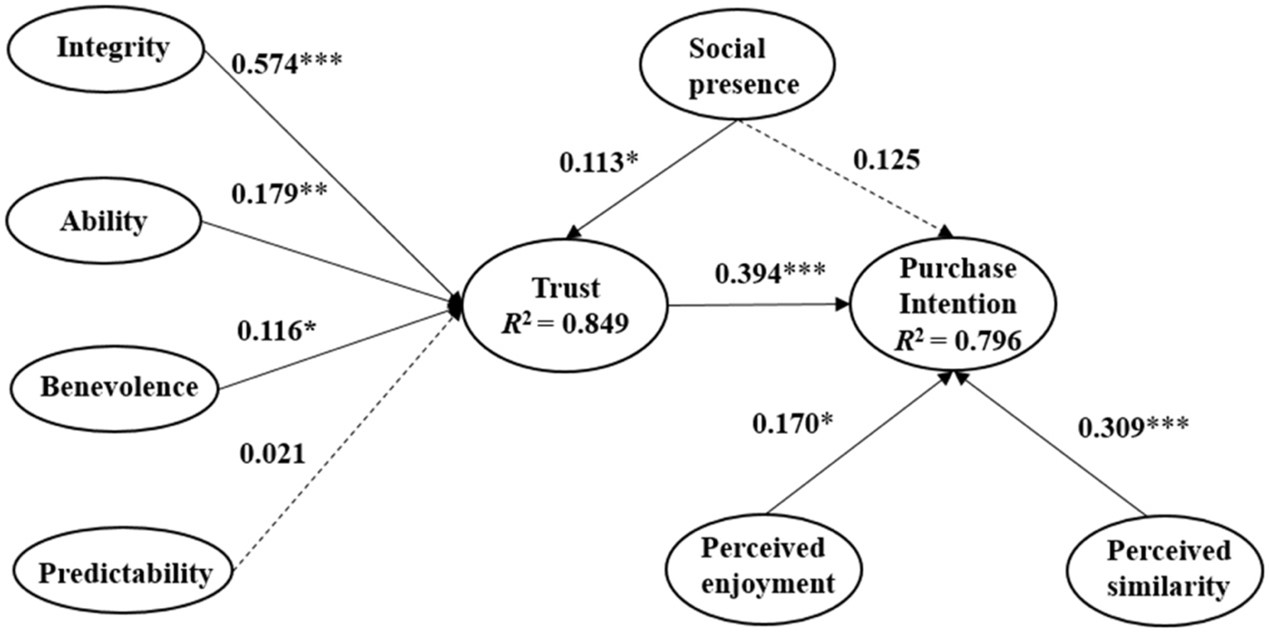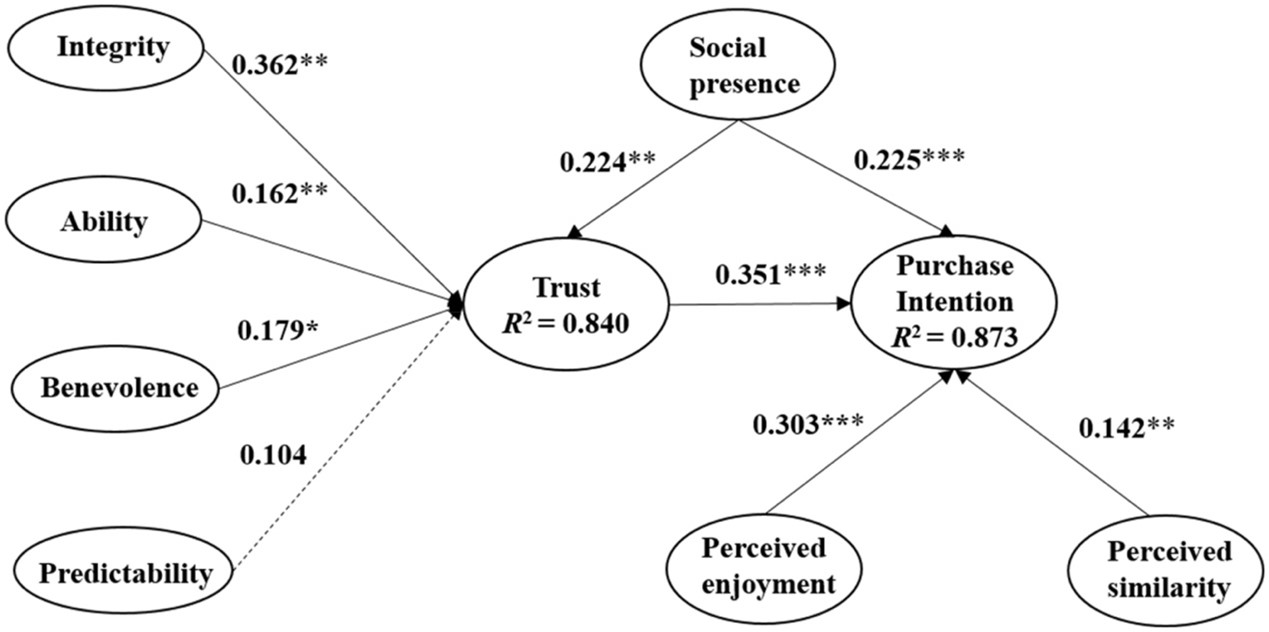RUC Team Publishes Paper in IJHCI
Associate Professor Qi Yue and her research team from the Department of Psychology, Renmin University of China (RUC) recently published a paper in the prestigious International Journal of Human–Computer Interaction (IJHCI). Collaborators includes Wang Kexin, graduate student in the Department of Psychology at RUC, Wu Jinyan, graduate student majored Applied Psychology at Peking University, Sun Yifei, undergraduate student majored in Applied Psychology at RUC, Chen Jiayuan, graduate student in the Department of Computer and Systems Sciences at Stockholm University, and Pu Yifan, graduate student in the Faculty of Psychology at Beijing Normal University of China. The paper is titled “Trust in Human and Virtual Live Streamers: The Role of Integrity and Social Presence”.

Abstract
With the development of live streaming e-commerce, an increasing number of virtual streamers have emerged on e-commerce platforms. Considering trust is an antecedent factor in entering business partnerships, this research examines the composition of trust in streamers and the factors influencing purchase intentions in live-streaming commerce, focusing on the differences between virtual and human streamers. Study 1 collected 411 survey data (147 males and 264 females) from consumers and used PLS techniques to evaluate the hypotheses. Study 2 designed a 2 × 2 × 2 mixed-design experiment to explore the causal relationship between the type of streamers, the streamer’s integrity, the live room’s social presence, and customers’ trust and purchase intention. One hundred sixty data were processed using repeated measures ANOVA. The results showed that trust in live streamers comprises perceived integrity, ability, and benevolence. Social presence influences trust for both types of live streamers, but it only directly affects purchase intention towards virtual streamers. Perceived enjoyment and similarity also affect purchase intention. More importantly, the effect of social presence on trust and purchase intention was constrained by the integrity and type of streamer. The present studies provide robust evidence for the trust and purchase intention in live streaming commerce, revealing perceptual differences between human and virtual streamers. It emphasizes the significance of integrity for human streamers and social presence for virtual streamers. This research not only offers insights and recommendations for the thriving human streamer industry but also sheds light on the potential development of virtual streamers in the future.
Findings and Contributions
Study 1 found that, for both human and virtual live streamers, the perception of traits related to streamers (integrity, ability, and benevolence) can positively predict trust in streamers. Moreover, both perceived enjoyment and similarity positively affect purchase intention, which is consistent with previous studies. In summary, Study 1 identifies that for both types of streamers, the primary dimensions contributing to trust are integrity, benevolence, and ability. The disparities between real and virtual streamers are predominantly reflected in the proportion of integrity and whether social presence directly affects purchase intention.

Figure 1. Results of the structural model for human streamers

Figure 2. Results of the structural model for human streamers
Study 2 confirmed that integrity plays a critical role in trust in both human and virtual live streamers. High integrity ratings built by past evaluations can increase customers’ trust in streamers and their purchase intentions. Additionally, integrity influences the effect of social presence on trust and purchase intention. Specifically, increasing social presence can only increase trust and purchase intention when dealing with high integrity streamers. Integrity is more important for human streamers, and social presence is more important for virtual streamers.
Link to paper
https://doi.org/10.1080/10447318.2023.2279410
About the Journal
The International Journal of Human-Computer Interaction (IJHCI) is a prestigious scholarly publication dedicated to advancing research and understanding in the interdisciplinary field of human-computer interaction (HCI). As a leading outlet for cutting-edge research, IJHCI publishes original contributions from researchers, practitioners, and scholars worldwide, covering a wide range of topics such as user experience design, usability, user interface design, interaction techniques, cognitive psychology, and computer-supported cooperative work.


